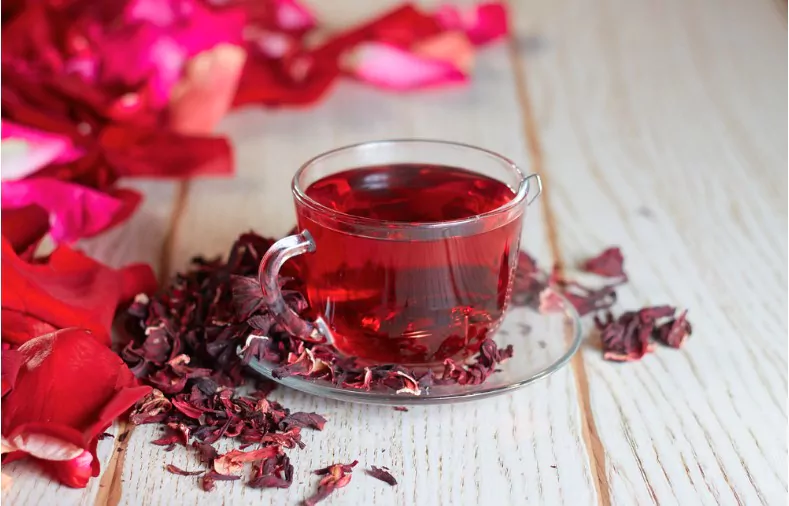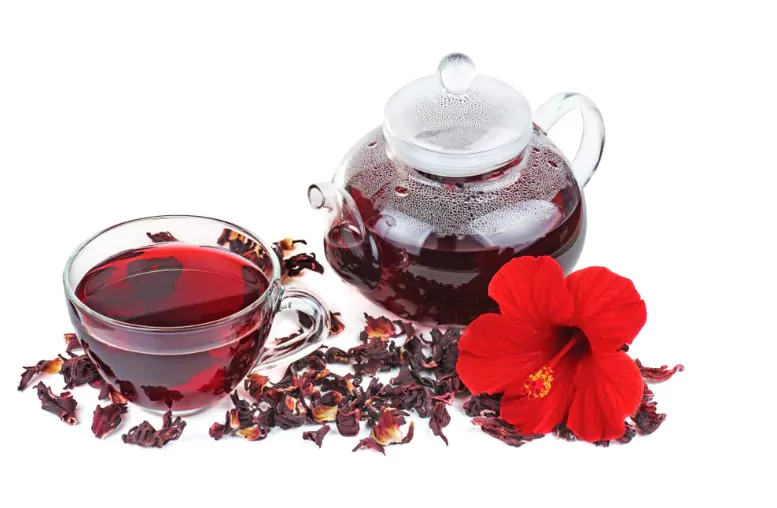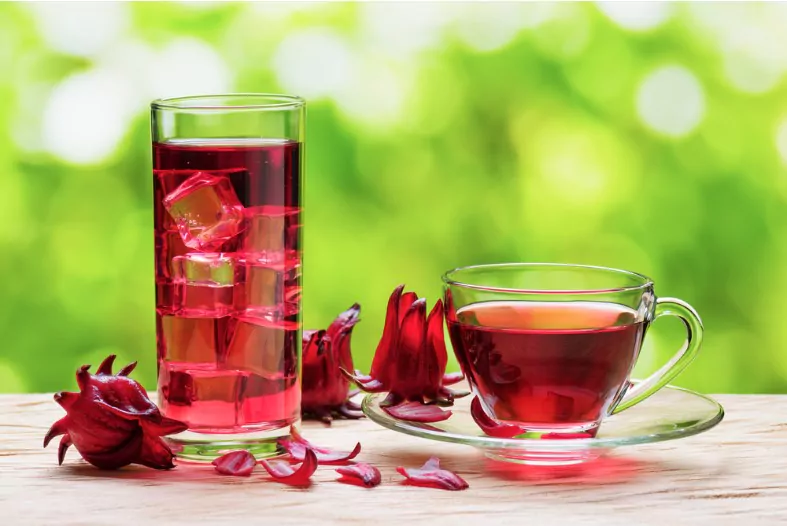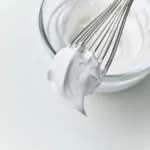How to Prepare Hibiscus Tea – Step-by-Step Guide

Flowers have always held a special place in our hearts, but not all of them are just for looking at. The hibiscus plant, native to warm and tropical climates, boasts more than just its beauty. Drink Hibiscus tea, derived from the petals of the hibiscus flower, often known as “sour tea” because of its tart flavor, is a delicious, aromatic, and healthful drink. In this blog post, we will delve deep into understanding how to prepare hibiscus tea, the plethora of health benefits it offers, and the exquisite taste that has made it popular in drinks cuisine worldwide.
1 Getting Started: The Basics of Hibiscus Tea

Before we dive into the specifics of making hibiscus tea, it’s essential to familiarize ourselves with its origin. The Hibiscus sabdariffa, a type of hibiscus plant, is where our prized hibiscus petals come from. These petals, when dried, form the main ingredient of our delicious hibiscus tea. If you’ve ever tasted Jamaica tea or agua de Jamaica, you’ve had a variant of hibiscus tea, often combined with cranberry juice or other ingredients to enhance its already vibrant flavor.
2 How to Make Hibiscus Tea: A Perfect Hibiscus Tea Recipe
Ingredients
- Dried hibiscus flowers (easily available at stores or you can purchase dried hibiscus online)
- Boiling water
- Lime or lemon juice (for taste)
- Sweetener of choice (honey, sugar, etc.)
- A tea infuser or sieve
- Optional: lime juice, lemon juice, orange blossom water, cranberry juice, mint leaves, cinnamon sticks, lemon zest, or sparkling water for flavor enhancement.
Hibiscus Tea Recipe
- Start by measuring about 2 tablespoons of dried hibiscus flowers for every cup of boiling water.
- Place the dried flowers in your tea infuser or directly into a teapot.
- Pour boiling water over the flowers and allow them to steep for 5-7 minutes. The longer you steep, the more robust and sour the flavor will become.
- Once done, strain out the hibiscus petals, ensuring you have a pure, deep red liquid.
- For those desiring a cold refreshment, hibiscus iced tea is an excellent choice. Simply cool the boiled mixture and serve with ice.
- Enhance its flavor by adding a splash of lime juice or lemon juice, or perhaps a hint of orange blossom water. Sweeteners like honey or sugar can also be added based on personal preference. For a festive touch, add a sprig of mint or a cinnamon stick.
3 Unlocking the Health Benefits of Hibiscus
Hibiscus tea isn’t just a treat for the taste buds; it’s packed with health benefits.
- Lowers Blood Pressure: Research suggests that consuming hibiscus tea can help lower blood pressure. Specifically, people with high blood pressure consumed hibiscus tea daily and found a notable reduction in their systolic and diastolic blood pressure. By potentially lowering blood pressure, hibiscus tea benefits those at risk of heart disease.
- Weight Loss: Weight Loss and Body Fat: Studies have shown that drinking hibiscus tea may aid in reducing body weight and body fat. Hibiscus extract has been found to reduce body mass index (BMI) and body fat levels, offering promising results for those interested in weight loss.
- Liver Health: Hibiscus tea benefits extend to liver health. Consuming hibiscus extract can reduce markers of liver damage. Moreover, it might help treat fatty liver disease and liver steatosis. However, more research is needed in this area.
- Rich in Antioxidants: Hibiscus tea is packed with antioxidants that fight harmful free radicals, protecting the body against cell damage.
- Lowers Blood Fat Levels: Studies suggest drinking hibiscus tea benefits those with high levels of LDL cholesterol. Moreover, hibiscus tea may decrease blood sugar levels, beneficial for those with diabetes.
- Rich in Vitamin C: Packed with vitamin C, hibiscus tea can help boost your immune system. This essential vitamin also fights harmful free radicals, protecting your body from potential cellular damage.
- Anti-Cancer Properties: Test tube studies have highlighted that hibiscus extract might possess anti-cancer properties. However, these findings warrant further research and should not be considered conclusive.
- Blood Sugar and Cholesterol Control: Another potential health benefit of hibiscus tea includes its ability to decrease blood sugar and LDL cholesterol, making it beneficial for those with diabetes and cholesterol concerns.
4 Blending Flavors: Making Hibiscus Tea Even More Delicious

Hibiscus tea on its own tastes delicious with its tart flavor reminiscent of cranberry juice. However, a splash of lime juice, a hint of lemon zest, or even a cinnamon stick can add a touch of magic to your tea. For a summer drink, hibiscus iced tea mixed with mint leaves is refreshing. The floral notes of the tea are also complemented by the subtle scent of orange blossom water.
5 Precautions and Considerations
Like all herbal teas, moderation is key when drinking hibiscus tea. Consuming concentrated doses may lead to some side effects. Additionally, while initial research on the benefits of hibiscus tea, especially in lowering blood pressure and supporting liver health, is promising, further research is always welcome.
6 Wrapping Up
Hibiscus tea, with its brilliant red hue and sour yet delightful taste, is more than just a beverage. It’s a world of health benefits wrapped in an aromatic, warm cup or a refreshing cold tea. From its roots in tropical climates to its esteemed place in drinks cuisine, the journey of the hibiscus flower from a flowering plant to a rejuvenating tea is truly special.
So, the next time you wish to indulge in an herbal delight, you now know how to prepare hibiscus tea that not only satiates the palate but also offers myriad health benefits. Whether you’re looking for weight loss, better liver health, or simply a delicious herbal tea, hibiscus should be on your list.
Note: Always consult with a healthcare professional before making any significant changes to your diet or consuming hibiscus tea for medicinal purposes.
Community Q&A
About This Article
This article has been viewed 325 times.



